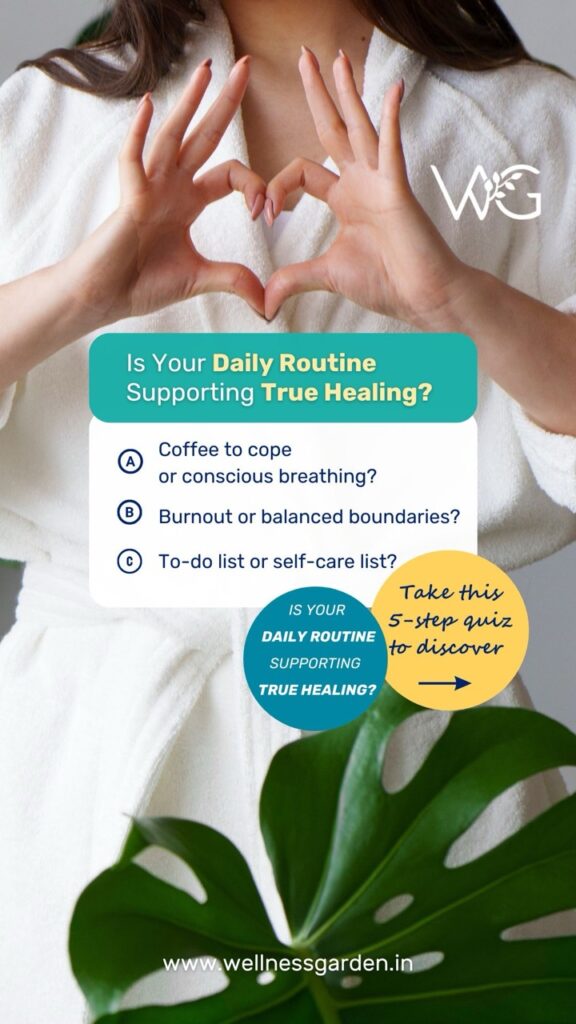Mood Swings Got You Down? Try Ayurvedic Treatment for Menopause with Herbs
- Daily Health
- 4 Min
- July 26, 2024
- Behaviour Health, Women Health
Learn about clinically-studied herbs that can ease hormonal transitions.
We all know that menopause is something every woman experiences, and it can bring a mix of feelings—sometimes tough to handle. You might have tried different medicines and treatments, but natural options like herbal remedies could be a great way to find relief.
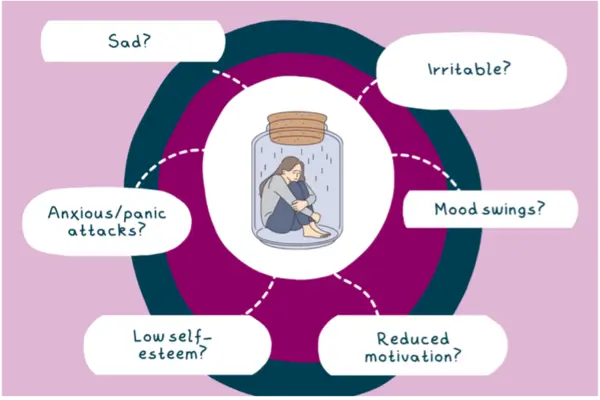
These ayurvedic treatment for menopause are becoming more popular because they offer a gentle approach to easing symptoms. So, let’s dive into some common menopause challenges and see how herbal remedies might help you feel better during this time.
Introduction
According to WHO report, menopause age in India is between 45-55. It’s a time when your body undergoes hormonal changes, ending the menstrual cycle which leads to various symptoms, including mood swings. While this period can bring some ups and downs, it’s important to remember that you’re not alone. This phase of life often comes with many responsibilities, but there are gentle, natural ways to find relief.Let’s explore some natural options that might make your journey through midlife transition a bit easier and more comfortable.
Your 40s are a time when life’s pressures can be greatest. Balancing work, family, and personal responsibilities can be overwhelming. According to Dr. Nazanin E. Silver, all of this stress can add to mental health, making the mood swings of the perimenopause stage even more intense something.The combination of hormonal changes and life stress can create a unique impact on your mood and overall well-being.
Stages
Perimenopause, menopause, and postmenopause are the three stages of the menopause. Every stage has a unique set of tough times and indications:
- Perimenopause: This period of transition, which comes before menopause, is defined by abnormal periods and signs like mood swings and hot flashes. At this stage, hormonal shifts can be especially strong.
- Menopause: The next step, that marks the end of the reproductive process. While irritability and periodic hot flashes could continue, the main sign is the end of menstruation from the last 12 months..
- Postmenopause: Declining hormone levels after the menopausal period can result in a number of health issues. Hot flashes, for example, can be reduced. During this phase, it’s critical that you focus on protecting overall wellness.
Common Menopause challenges or symptoms
During menopausal transition, your hormones go through a lot of changes, and this can really affect your mood specially. When your hormones-estrogen and progesterone levels drop, it can mess with the brain chemicals that help keep your emotions in check. This can make you feel more irritable or sensitive. You might also notice that you’re more prone to feelings and find it harder to stay calm or other symptoms:
- Mood Swings: The emotional rollercoaster can make you feel like you’re losing control. One moment you might feel happy, and the next, you’re sad or angry for no clear reason.
- Hot Flashes: Sudden waves of heat that can leave you sweating and uncomfortable, often at the most inconvenient times.
- Night Sweats: These can disrupt your sleep, leaving you tired and cranky during the day.
- Sleep Problems: Insomnia and restless nights are common, making it hard to feel rested and energized.
- Fatigue: Constant tiredness can make it difficult to get through the day, affecting your work and personal life.
- Anxiety and Depression: Hormonal changes can lead to feelings of anxiety or depression, making everyday tasks feel overwhelming as per a report of John Hopkins.
We know it can feel tough, and each of you experiences it differently. The physical and emotional challenges can be unique, and it’s not just about the symptoms themselves but how they affect your daily life. The tiredness, mood swings, and anxiety can make even simple tasks feel like climbing a mountain and it can be frustrating when others don’t quite get what you’re going through.
But remember, it’s just a phase in your life. Do self-love and understand that this is something many females face can help make it easier. With the right support and natural ways to ease the symptoms, you can navigate this time more comfortably with some natural remedies.
Why are Herbal Remedies a popular choice?
Herbal solutions are gaining attention among pre, during or post-menopausal for several reasons:
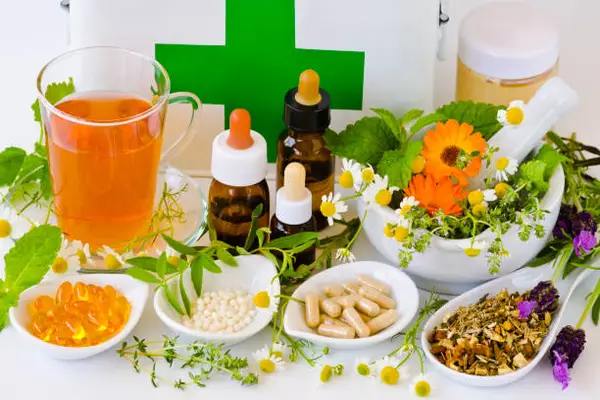
- Natural Approach: Provides a gentle one to ayurvedic treatment for menopause from synthetic therapies for balancing bodily functions.
- Customized Treatment: Allows for a personalized approach to managing menopause symptoms.
- Holistic Benefits: Enhances overall well-being, including improved sleep,better digestion and reduced stress.
- Safety Considerations: Generally considered safer with fewer concerns compared to artificial treatments.
- Empowerment: Enables women to take control of their health with tailored plant-based options.
Effective clinical-studied natural herbs and treatments
When it comes to managing menopause, many of you are exploring options beyond traditional hormone replacement therapy (HRT). One alternative that’s gaining attention is Bio-Identical Hormone Replacement Therapy (BHRT). Unlike conventional HRT, which uses synthetic hormones with risks such as increased chances of breast cancer, heart disease, and blood clots, etc.
The BHRT, a new natural approach, uses hormones that are chemically identical to those naturally produced by your body. This approach aims to provide a more natural balance, reducing the risk of side effects often associated with synthetic hormones.
In addition to BHRT, herbal remedies are another famous alternative. Many of these natural solutions have been studied for their effectiveness in alleviating changing life symptoms. Let’s look at some clinically-researched herbs that might offer relief:
- Black Cohosh
- Benefits: Reduces hot flashes and mood swings by mimicking estrogen effects.
- Recommended Dosage: 20-80 mg daily
- St. John’s Wort
- Benefits: Treats mild to moderate depression, helpful for mood swings and depressive symptoms.
- Recommended Dosage: 300 mg three times daily
- Red Clover
- Benefits: Balances estrogen levels, alleviates mood swings, and reduces hot flashes.
- Recommended Dosage: 40-80 mg isoflavones daily
- Dong Quai
- Benefits: Known as the “female ginseng,” balances hormones and improves mood.
- Recommended Dosage: 500-600 mg daily
- Chasteberry (Vitex)
- Benefits: Regulates the pituitary gland, stabilizes mood swings, and hormonal imbalances.
- Recommended Dosage: 20-40 mg daily
- Ginseng
- Benefits: Boosts energy, combats fatigue, and indirectly improves mood and well-being.
- Recommended Dosage: 200-400 mg daily
- Soy
- Benefits: Contains phytoestrogens that mimic estrogen, balancing hormone levels and easing mood swings.
- Recommended Dosage: 40-80 mg isoflavones daily
- Ashwagandha Powder
- Benefits: An adaptogen that helps manage stress, reducing anxiety, and improving mood stability.
- Recommended Dosage: 300-500 mg daily
Other holistic therapies for Menopause relief
In addition to herbal solutions, 7 natural menopause treatments that really work and support you:
- Traditional Chinese Medicine (TCM): Includes acupuncture, herbal medicine, and dietary therapy.
- Biofeedback: Helps manage stress and anxiety.
- Homeopathy: Uses natural substances in small doses to support the body’s healing.
- Hypnotherapy: Assists in managing anxiety and stress.
- Cognitive Behavioral Therapy (CBT): Effective for mood swings and depression.
- Nutritional Therapy: Focuses on a balanced diet rich in phytoestrogens, vitamins, and minerals.
- Yoga and Meditation:Give peace, calmness, positive feelings and overall well-being.
- Pilates:Boosting your strength and flexibility.
How to choose the right ayurvedic treatment for menopause?
When selecting herbal remedies, consider the following factor and some tips:
- Personal Health History: Some herbal solutions might interact with medications or pre-existing conditions. So,it is advisable to use herbal remedies under expert guidance.
- Preferences: Taste, form (tea, capsules, tinctures), and lifestyle compatibility.
Practical Tips
To effectively incorporate herbal remedies into your routine, consider these tips:
- Start Slowly: Introduce one herb at a time to monitor its effects.
- Consistency is Key: Take the herbs regularly as directed to see the best results.
- Stay Hydrated: Drink plenty of water to help your body absorb the herbs.
- Combine Therapies: Pair herbal remedies with other holistic practices like yoga or meditation for added benefits.
Bottom Line
Managing your menopausal phrases and its accompanying mood swings can be challenging, but with the right herbal remedies and holistic approaches, it can become a manageable and even empowering experience. By choosing clinically-studied herbs like Black Cohosh, St. John’s and incorporating them thoughtfully into your routine, you can find natural relief and support during this significant life transition.
A Word From WG
Wellness Garden is your committed partner in seeking comprehensive natural and holistic therapies to address all your pain and wellness requirements. Our approach encompasses the entirety of your body, mind, and environment, integrating body, mind, and ayurvedic treatment for menopause and various other techniques.
Whether facing physical or mental health concerns, life hurdles, or simply aiming to enhance your overall well-being, we’re here to provide the support you need. Get in touch with us to explore the possibilities and embark on your journey towards holistic therapy and improved health.
- Table of Contents
- • Introduction
- • Stages
- • Symptoms
- • Natural herbs/ treatment
Recent Posts
Join Our Newsletter
End note from WG Team
Dr. Geetha Kamath
Physician
Disclaimer: This information is provided for educational purposes and should not be construed as medical advice. Please consult with healthcare practitioners before undertaking any changes in wellness routines or adding new therapies.
Latest Blogs
Check out some of your blogs related to your interest.
- July 14, 2025
- 3 Mins
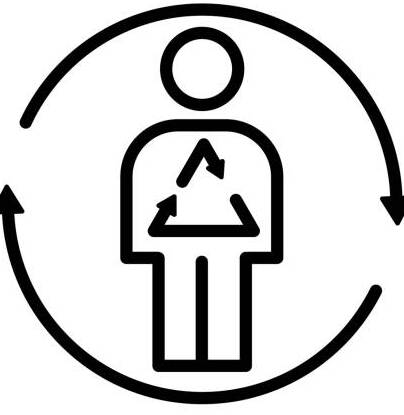
- July 5, 2025
- NIH
- 2 Mins
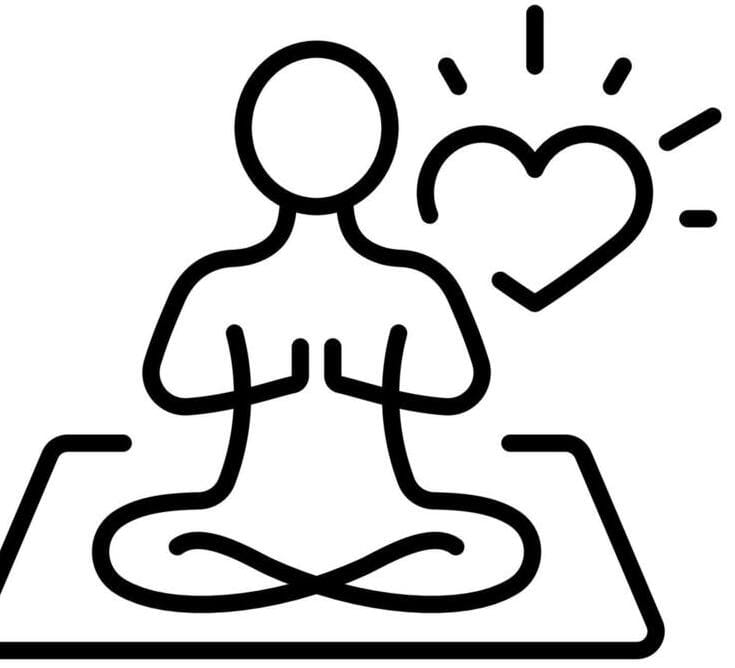
- July 4, 2025
- 3 Mins

- June 22, 2025
- Harvard Health
- 2 Mins


